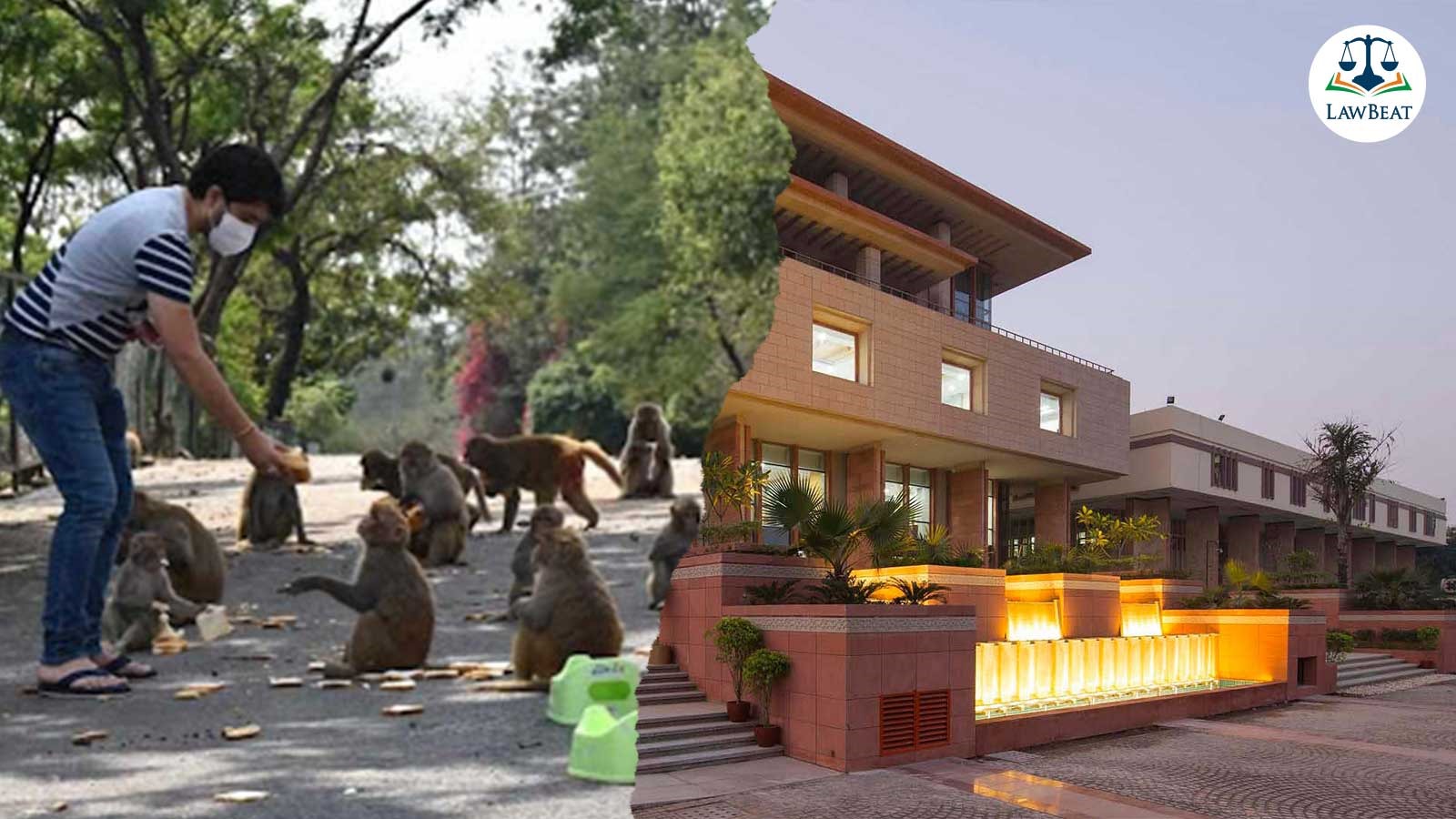‘Humans Giving Food To Monkeys Harms Them’: Delhi HC Directs Municipal Corporation To Transfer Monkeys To Asola-Bhatti Wildlife Sanctuary

“Monkeys in forests live on tree tops, feed on natural berries, fruits and stalks etc. One wonders, what has brought monkeys down on street and pavements? The answer is humans. It’s we who have enticed the monkeys out of their natural habitat by feeding them”, the court remarked.
The Delhi High Court, recently, directed the Municipal Corporation of Delhi and New Delhi Municipal Corporation to transfer the monkeys ‘from public parks, hospitals, government offices and residential areas and rehabilitate in Asola-Bhatti Wildlife Sanctuary’. The court noted that while monkeys in their natural behavior lived in tree tops rarely coming down to the ground, the habit of humans feeding them “bread, chapattis and bananas to monkeys, harms them and puts them in conflict with people”.
The bench of Chief Justice Manmohan and Justice Tushar Rao Gedela further directed that “The civic agencies should carry out a sustained year long public awareness campaign to inform people how their feeding is not benefitting the monkeys. That in fact feeding harms the animals in various ways by increasing their dependence on humans and reduces natural distance between wild animals and humans”.
Through an amendment to the Wildlife Protection Act, of 1972, the rhesus macaque, a species of monkey commonly found in Delhi, was removed from Schedule II of the Act. As a result of this delisting, the rhesus macaque no longer enjoyed protected status under the Wildlife Protection Act, 1972, and was to be treated by civic authorities in the same manner as stray cats or dogs.
The court noted that the monkeys in their natural forest habitats lived on treetops, consuming berries, fruits, and other natural vegetation. However, the question arose as to why these monkeys had increasingly appeared on streets and pavements. The answer lies in human actions. People had lured the monkeys from their natural environments by feeding them. Offering bread, chapattis, and bananas to monkeys harmed them and created conflicts between monkeys and humans.
To address this situation, civic agencies were advised to conduct a sustained, year-long public awareness campaign. This campaign aimed to inform the public that feeding monkeys did not benefit them; rather, it harmed the animals by increasing their dependence on humans and reducing the natural distance between wild animals and people. It was believed that the people of Delhi, once made aware of these facts, would change their behavior, recognizing that feeding wild animals was detrimental to both animal welfare and human safety.
Another crucial aspect of the urban ecosystem was waste management. Improper disposal of garbage in public parks, food hubs, dhabas, and canteens attracted monkey populations, exacerbating human-animal conflicts. If the residents of Delhi sought a safer environment, they would need to adopt better habits and avoid littering food in public spaces. This issue also required emphasis in the public awareness campaign to be undertaken by civic authorities.
Consequently, the municipal authorities, specifically the MCD and NDMC, were directed to formulate and implement a comprehensive program to address the monkey menace. Additionally, they were required to ensure that monkeys were relocated from public parks, hospitals, government offices, and residential areas, and rehabilitated in the Asola-Bhatti Wildlife Sanctuary, New Delhi.
Furthermore, the MCD, NDMC, and Ram Manohar Lohia Hospital were instructed to submit an updated status report within three weeks, with the matter scheduled for further hearing on 25th October 2024.
Case Title: Nyaya Bhoomi v Govt. Of Nct Of Delhi (W.P.(C) 3346/2015)
